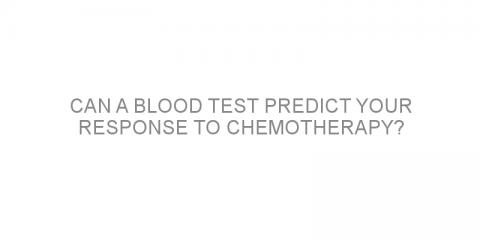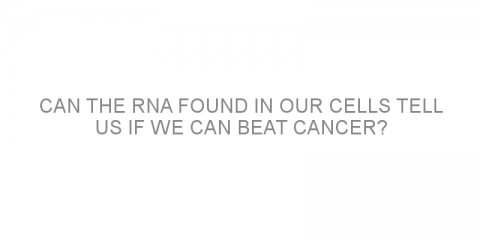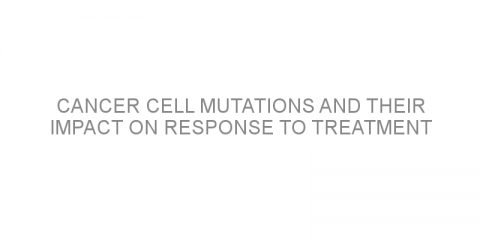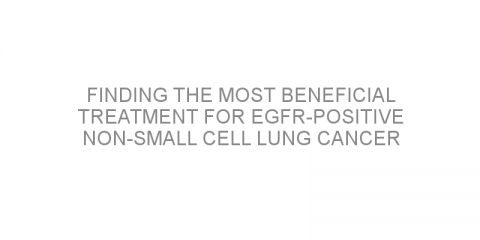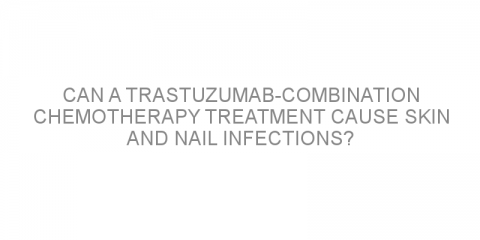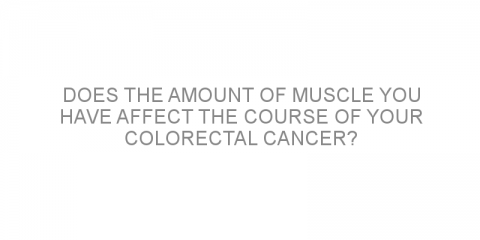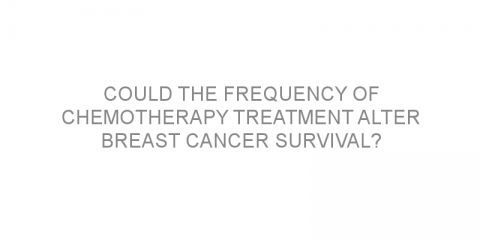In a nutshell This study looked at the risks of lung cancer recurrence (return after treatment) and mortality rates following recurrence. Some background Treatment for early-stage lung cancer (cancer that has not spread to other areas) typically involves a combination of surgery, chemotherapy and radiation. Patients usually receive...
Read MoreTreatment(s) now being considered-Chemotherapy Posts on Medivizor
Can a blood test predict your response to chemotherapy?
In a nutshell This study examined whether the albumin to globulin ratio (a measure of inflammation in the body) could predict the response to chemotherapy in colorectal cancer. Some background Colorectal cancer is one of the most common forms of cancer. Patients with colorectal cancer that has spread from its original site and whose cancer cannot...
Read MoreCan the RNA found in our cells tell us if we can beat cancer?
In a nutshell This study examined whether levels of microRNA-21 could predict the patient response to chemo-radiotherapy delivered before they had surgery. Some background Almost a third of colorectal cancer is rectal cancer. The treatment for this cancer which has started to spread is a combination of chemotherapy,...
Read MoreCancer cell mutations and their impact on response to treatment
In a nutshell The authors aimed to determine the significance of cancer cells mutations (a permanent change in the genetic core of the cell) and their impact on a patient’s eligibility for certain therapy drugs. Some background Tumor suppressor genes (such as BRCA-1) protect cells from becoming cancerous through mechanisms that repair damage...
Read MoreTreatment options for eye melanoma: a review
In a nutshell The authors reviewed the biology as well as current and future treatment options for eye melanoma. Some background Uveal melanoma is a rare cancer (melanoma) of the eye. It involves three parts of the eye (iris, ciliary body and choroid) known together as the uvea. Eye melanoma is associated with a high risk...
Read MoreTherapy before surgery: What are the benefits?
In a nutshell The authors aimed to determine the advantage of neo-adjuvant (treatment given before surgery) therapies in terms of eligibility for certain surgeries. Some background Neo-adjuvant chemotherapy (NAC) is often provided to patients prior to surgery in an attempt to first shrink the tumor. This type of treatment is known to increase the...
Read MoreFinding the most beneficial treatment for EGFR-positive non-small cell lung cancer
In a nutshell This study looked at Asian patients with non-small cell lung cancer (NSCLC) and compared the use of two drug regimens to see which was better. Some background Non-small cell lung cancer (NSCLC) is the most common type of lung cancer. Some patients with NSCLC have a genetic mutation in a specific gene, the epidermal growth factor...
Read MoreThe effects of not receiving appropriate breast cancer treatment
In a nutshell The authors aimed to determine the recurrence (the cancer returns) rates in women with human epidermal growth factor receptor 2 positive (HER2+) breast cancer who do not receive anti-HER2+ therapy. Some background HER2+ breast cancer is a specific sub-type of breast cancer dependent on the HER2 protein for growth. It is often...
Read MoreCan a trastuzumab-combination chemotherapy treatment cause skin and nail infections?
In a nutshell The authors aimed to determine whether severe skin and nail infections observed in patients with breast cancer were due to a combination-chemotherapy treatment. Some background Trastuzumab (Herceptin) is a common drug used to treat patients with human epidermal growth factor 2 positive (HER2+) breast cancer. The HER2 protein can...
Read MoreDoes the amount of muscle you have affect the course of your colorectal cancer?
In a nutshell This study looked at how useful the change in the amount of muscle after chemotherapy is at predicting the course of colorectal cancer. Some background As we age we normally lose some muscle. This limits physical activity such as exercise. In patients with cancer, lower levels of muscle can increase side...
Read MoreCould the frequency of chemotherapy treatment alter breast cancer survival?
In a nutshell The authors aimed to determine both the effectiveness and toxicity of a type of chemotherapy treatment for breast cancer. Some background Adjuvant chemotherapy is a course of chemotherapy that patients often receive after their main treatment. Chemotherapy can reduce the risk of cancer recurrence (the cancer returns) and improve...
Read MoreCovering all the bases: a combination of three treatments for non-small-cell lung cancer
In a nutshell The authors evaluated the safety and efficacy of combining three different types of treatment in non-small-cell lung cancer. Some background Non-small-cell lung cancer (NSCLC) accounts for the majority (80%) of lung cancers. Surgery is the typical treatment, however patient outcomes are typically poor without a second...
Read More

